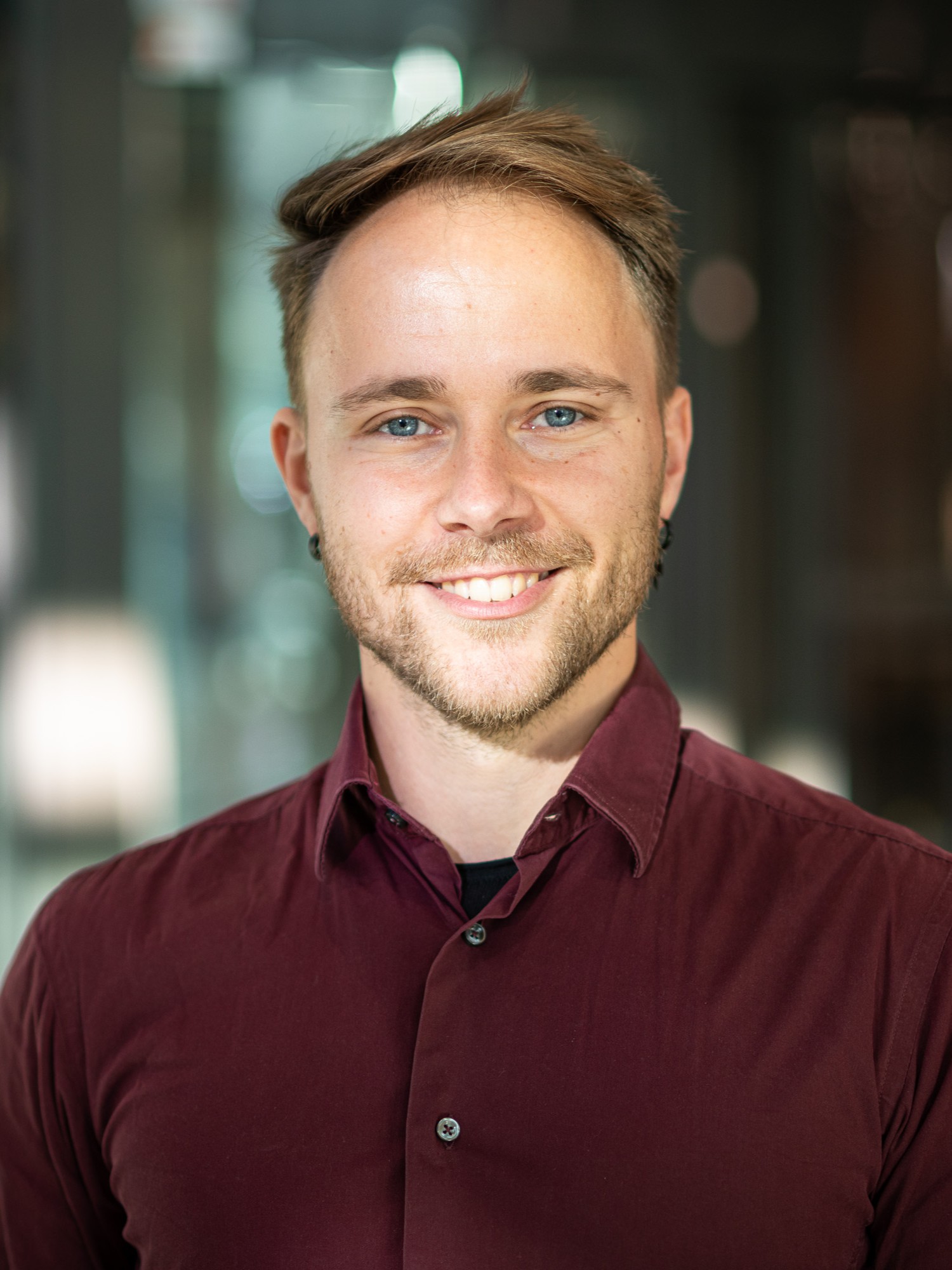Jimmy Köpke
Contact/ Address
PhD candidate
Jimmy Köpke
Phone: +49 (0) 341 6025-1759
Office: Building 1.0, Room 023

Curriculum Vitae
| Jan 2026 - June 2026 | Visiting PhD student at Institute for Urban Environment, Chinese Academy of Sciences (CAS), Xiamen (China) |
| May 2022 - Present | PhD candidate at UFZ and German Environment Agency (UBA) (Department of Water treatment) |
| May 2022 - Nov 2022 | Research Assistant (Intern) at the United Nations University - Institute for Water Environment and Health (UNU-INWEH), Ontario (Canada), Topic: Global Bottled Water Industry - A Review on Impacts and Trends |
| Sep 2021 - Jan 2022 | FPI Research Fellow; Universidade de Santiago de Compostela, CRETUS (Spain), Topic: Assessment of antibiotic biotransformation and antibiotic resistance abatement in High-rate activated sludge systems (HRAS) |
| 2017 - 2021 | M.Sc. in Environmental Sciences and Engineering at Technische Universität (TU) Berlin; Focus: Environmental Biotechnology |
| 2019 - 2020 | Exchange semester at Tsinghua University (Beijing, China), Graduate programme in Environmental Science and Technology |
| 2019 | SCELSE Summer school; Singaporian Centre for Environmental Research (SCELSE; Singapore) |
| 2013 - 2018 | B.Sc. in Environmental Science and Engineering, TU Berlin; Focus: Environmental Microbiology |
Research
My PhD research is focused on the fate assessment of organic micropollutants (OMPs) within the multi-barrier concepts of drinking water resource protection. Wastewater treatment plants are not sufficiently equipped to fully eliminate antibiotic residuals, some of their human metabolites and transformation products (TPs) and hence discharge still considerable amounts into surface water. Contaminated surface water infiltrates into the ground via bank filtration or managed aquifer recharge (MAR), potentially posing a risk to groundwater as highly vulnerable drinking water resource.
We postulate that microbial processes of various redox zones play an essential role in the fate and transformation of OMPs and their human metabolites during bank filtration. Hence, we are long-term operating redox-differentiated lab-scale bank filtration column systems. We are establishing mass spectrometry methods (LC-MS/MS) to investigate the fate of these water constituents and particularly the transformation pathways occurring under different redox conditions. Additionally, we employ (meta)genomics and shot-gun (meta)proteomics tools to identify key-transforming microbial populations and proteins.
Overall, our work further reveals the complex interplay of redoxdifferentiation, microbial populations and transformation pathways for OMPs during bank filtration. Henceforth, our research can propose direct approaches to promote the natural attenuation capacity of bank filtration for OMPs ultimately protecting vulnerable drinking resources.
Publications
Index:
You could use our publication index for further requests.
2025 (2)
- Köpke, J., Bayarsaikhan, U., Adrian, L., Jekel, M., Ruhl, A.S. (2025):
Leaf litter material limits the elimination of organic micropollutants in redox-differentiated lab-scale bank filtration columns
Sci. Total Environ. 993 , art. 179979 10.1016/j.scitotenv.2025.179979 - Liu, X., Köpke, J., Akay, C., Kümmel, S., Imfeld, G. (2025):
Sulfamethoxazole transformation by heat-activated persulfate: Linking transformation products patterns with carbon and nitrogen isotope fractionation
Environ. Sci. Technol. 59 (11), 5704 - 5714 10.1021/acs.est.4c09732
2024 (1)
- Liu, X., Akay, C., Köpke, J., Kümmel, S., Richnow, H.H., Imfeld, G. (2024):
Direct phototransformation of sulfamethoxazole characterized by four-dimensional element compound specific isotope analysis
Environ. Sci. Technol. 58 (23), 10322 - 10333 10.1021/acs.est.4c02666
2023 (1)
- Bouhlel, Z., Köpke, J., Mina, M., Smakhtin, V. (2023):
Global bottled water industry: a review of impacts and trends
United Nations University Institute for Water, Environment and Health (UNU INWEH), Hamilton, 41 pp.
